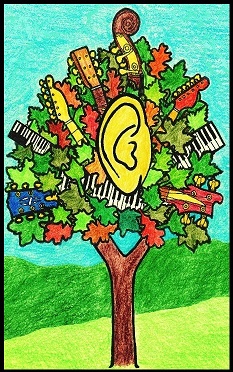 The core competencies for classical musicians are different than those for performers and creators of modern popular music, like rock, country and related styles, but they’re not mutually exclusive. Many classically-trained musicians also understand the conventions of modern music, and can work in modern-day creative environments.
The core competencies for classical musicians are different than those for performers and creators of modern popular music, like rock, country and related styles, but they’re not mutually exclusive. Many classically-trained musicians also understand the conventions of modern music, and can work in modern-day creative environments.
The problem is that many more can’t. Almost a quarter way through the 21st century, there is still a troubling disconnect between classical and modern musicians. I’ve personally witnessed dozens of mismatches between classically-trained players and rock bands or stage bands. You see it a lot in church groups, where people from a wide variety of backgrounds are thrown-in together.
Examples of the Classical/Modern Disconnect are everywhere. It’s a banjo player who can’t read the part the arranger wrote for him, so he makes up his own part and nails it on the first take. It’s Zubin Mehta after watching a performance by The Nice, saying to Keith Emerson, “So you did all that without music?” It’s a ballpark organ-player (classically-trained) crashing a recording session because he has no earthly idea what to play over a 12-bar blues. It’s a school-trained jingle-writer who can’t land clients because he was only taught how to write big band arrangements. The list goes on.
Here’s an example. If you put a chord chart in front of two musicians, and say to both of them, “It starts with a straight-four rock feel. It goes to a shuffle in the bridge, then back to the main groove for the last chorus and out,” then the modern musician, who is used to thinking about music in terms of concepts, and improvising parts within a style, has a good idea of what to do. More than likely, the classically-trained musician, who isn’t used to playing based on concepts, will be at one complete and utter loss.
The reason this doesn’t make sense is most of the concepts modern musicians use are concepts from the classical school. There’s no disconnect between the classical and modern schools regarding the terms they use to talk about chords, scales, rhythms, etc. The problem is that classical musicians aren’t used to making up parts, or even just simple grooves, based on those concepts.
“Straight-four rock groove” isn’t a classical concept, but it’s hard to imagine anyone living in the 21st century who hasn’t heard a straight-four rock beat. The same thing goes for “shuffle.” How much popular culture would you have to avoid to have never heard these grooves?
Other than drum beats, the other concepts – chord symbols, chord chemistry, rhythmic figures, scale choices for improvising – are all classical concepts. The disconnect isn’t a clash between two different musical languages. The Classical/Modern Disconnect is a creature of the mind, and guess whose mind it is? Because it is rooted in the rejection of modern approaches to teaching music, the job of bridging this disconnect falls on the “classical school.”
Every music method, whether classical or modern, takes a side in the ongoing internal argument over whether to accept the working methods of modern musicians, and more broadly, whether to accept modern musical values. Every approach to music falls somewhere in the spectrum of acceptance or rejection of modern musical values. As it relates to teaching methods, there’s no such thing as neutrality in this ongoing argument.
One source of the Classical/Modern Disconnect is that you can’t compare the creative styles of classical musicians and modern musicians, because for practical purposes, classical musicians aren’t concerned with “creating.” Most classical musicians are not composers. In the classical world, music of the 20th and 21st centuries is a specialty. For most classical musicians, the main emphasis is on the era from Bach to Debussy.
© 2019, 2020 Greg Varhaug